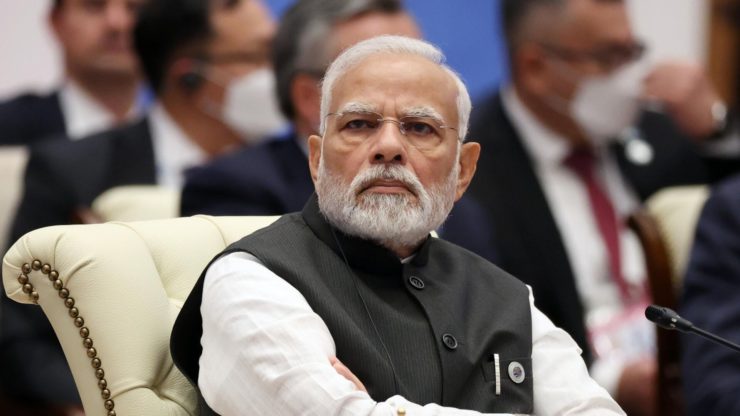
India’s recent parliamentary elections resulted in a third consecutive victory for the ruling National Democratic Alliance (NDA) led by N. Modi’s Bharatiya Janata Party (BJP), which won the required majority to form a coalition government.
Thus, Narendra Modi, along with the first Prime Minister of independent India, Jawaharlal Nehru, went down in the country’s history as the Head of the Government who has won thrice in a row. Traditionally, the inauguration ceremony of the re-elected Prime Minister on June 8, 2024 was attended by the heads of the states and governments of the countries neighboring and closest to India, such as Bangladesh, Bhutan, Mauritius, Maldives, Nepal, Seychelles and Sri Lanka. It was the leaders of these states with whom Narendra Modi had his first contacts as the re-elected Prime Minister, which indicates India’s especially close relations with these countries. It is noteworthy that Russian President V.V. Putin was one of the first to congratulate the Indian Prime Minister. During the telephone conversation held, the parties confirmed their intent to continue putting a priority on strengthening the particularly privileged strategic partnership relations between the two traditionally friendly countries. It was also agreed to continue the contacts at the highest level.
First foreign visit of the re-elected Prime Minister
In this context, it may seem strange at first sight that the re-elected Indian Prime Minister’s first foreign tour was to Italy to participate as an invited guest at the regular summit of the Group of Seven held on June 13-15, 2024. But, apparently, the summit dates just coincided with the end of the parliamentary elections in India, although, admittedly, official New Delhi always attaches its great importance to the development of relations with the G7 states. That is why the participation of the Indian Prime Minister in the summit events in Italy seems to be not coincidental and fits well into the multi-vector foreign policy course of the country’s leadership. It was also important for Narendra Modi to meet the G7 leaders and discuss with them the status and prospects of the dynamic bilateral relations. And this appears to be the case, since N. Modi had, on the summit sidelines, his talks with the heads of states and governments of the G7 countries, as well as with the UN Secretary General and EU leadership.
Of special significance were the Indian Prime Minister’s contacts with the US and French Presidents, and German Chancellor, during which, along with the trade economic and investment cooperation enhancement, the issues of military-technical ties were also discussed, specifically, new supplies of weapons for the needs of the Indian Ministry of Defense, which, it should be recognized, affects the interests of Russia, which is still the main exporter of military equipment to this country, but is increasingly facing tough competition with Western countries. In general, the current situation of increasing India’s ties with major Western partners in various fields, including in the military-technical cooperation area, does not nearly contradict the stated goals of the Indian leadership for the priority development of partnership with Russia and active participation of New Delhi in the activities of BRICS and SCO.
New Delhi is for the setting of an equitable multipolar world order
It should not go unnoticed that N. Modi met, on the sidelines of the G7 event in Italy, with the head of Ukraine V. Zelensky, whose term of office expired on May 20. The latter once again unsuccessfully tried to win the Indian Prime Minister over to his side, while relying on the support of the United States and entire West.
But not so fast, as India is still ready to principally develop trade and economic ties with Ukraine, but does not retreat with regard to the issues of military and political settlement of the situation from its firm and committed position in favor of a peaceful resolution of the conflict with the direct participation of Russia. In short, it is a failure this time either to break down India and turn them away from a balanced and neutral approach both to joining Western anti-Russian sanctions and the Ukrainian issue.
This position of the Indian leadership has not also undergone any changes as to the participation of Deputy Foreign Minister, former Ambassador to Moscow, Pavan Kapoor in the Ukraine issue-related international conference in Switzerland on June 15-16, 2024. There, New Delhi confirmed its steadfast position on the peaceful settlement of the controversy around Ukraine, did not join the anti-Russian bacchanalia that prevailed during the discussions and, along with other BRICS members, did not join the adopted statement, which is a credit to this great and inherently global power that stands together with Russia for the setting of an equitable multipolar world order.
Anvar Azimov, Ambassador Extraordinary and Plenipotentiary, Senior Scientific Researcher at the Moscow State University of Foreign Affairs (MGIMO), exclusively for the online magazine «New Eastern Outlook»